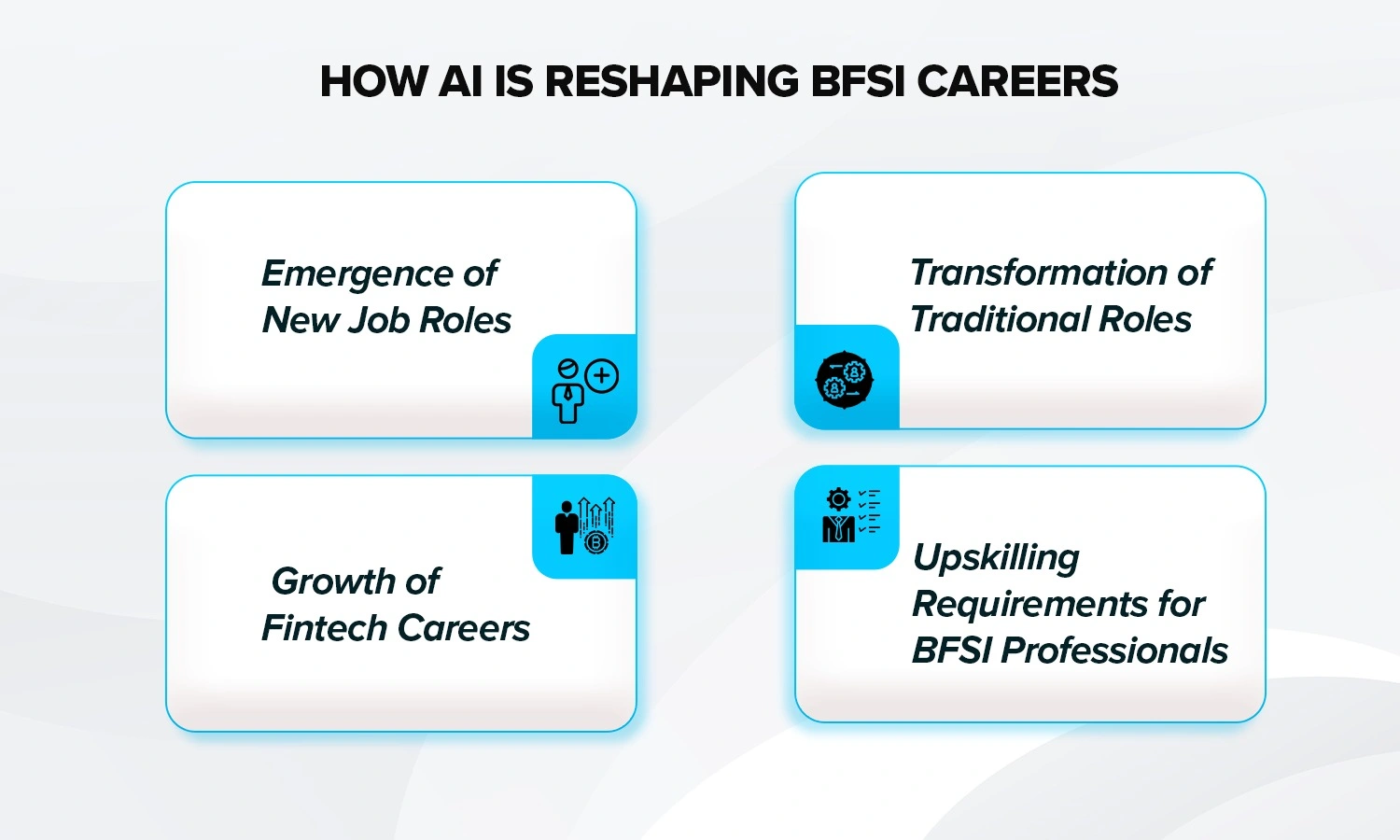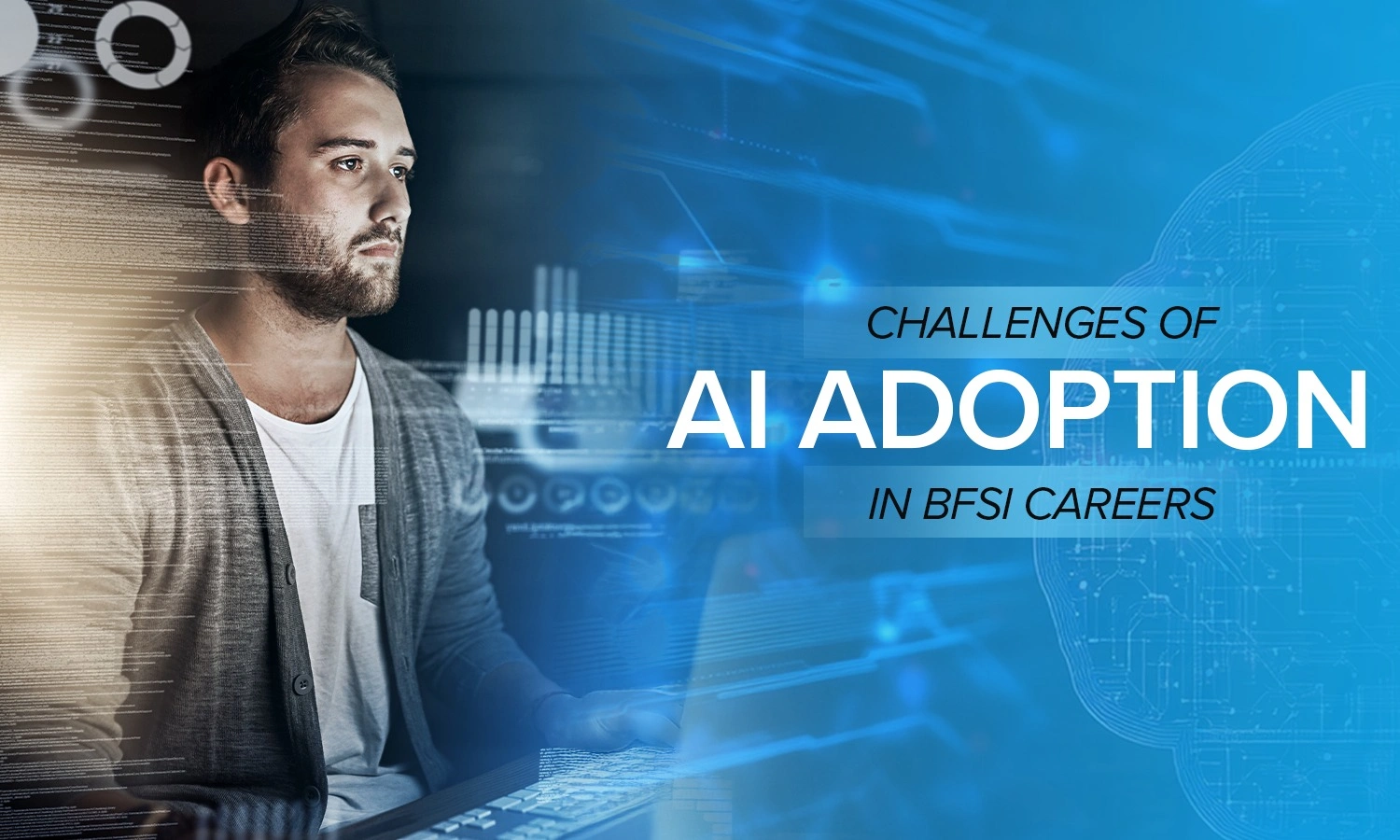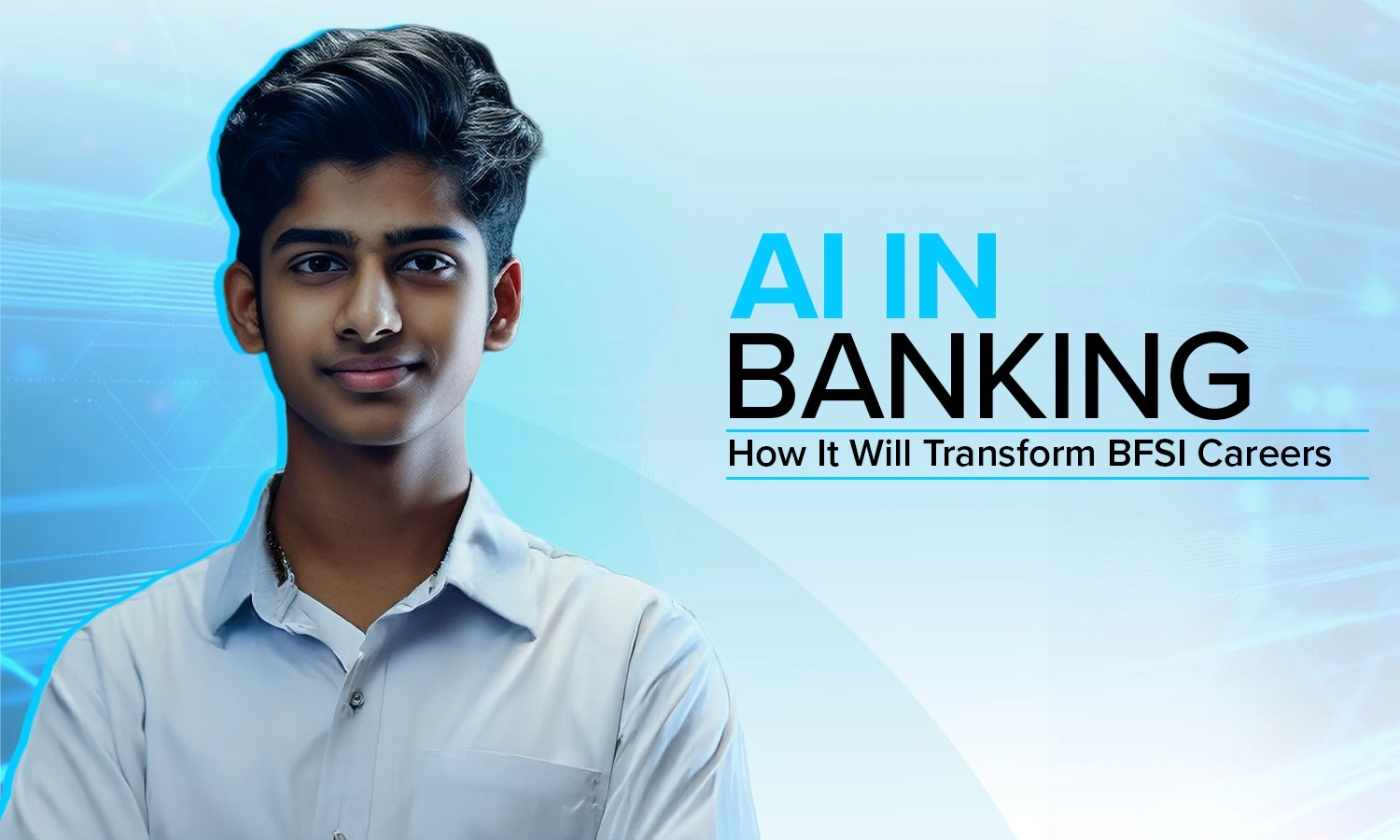The rise of AI in banking is changing the way banks operate, make decisions, and interact with customers. From automating routine processes to predicting risks, AI is now at the center of the future of the BFSI sector. For graduates and young professionals, this transformation isn’t just about technology; it’s about the new opportunities and career paths opening up. At SRM School of Banking, where industry-focused learning is a core priority, students are trained to adapt to this evolving landscape.
What Is the Role of AI in Modern Banking?
The role of AI in banking is expanding rapidly. Today, AI powers fraud detection, customer service chatbots, credit scoring, and the delivery of personalized financial advice. Banks use AI to analyze massive amounts of data in real-time, ensuring quicker and more accurate decision-making.
- Automating compliance and back-office operations
- Enhancing customer engagement through predictive analytics
- Strengthening risk management with smarter fraud detection For aspiring professionals, this shift means understanding not just banking fundamentals but also how technology drives customer-centric solutions.
How AI is Reshaping BFSI Careers

Emergence of New Job Roles
AI has created new opportunities in areas like data science, digital lending, AI model development, and fraud analytics. BFSI careers are no longer limited to traditional banking—they now include hybrid tech-finance positions.
Transformation of Traditional Roles
Roles like credit analysis, customer relationship management, and compliance are being redefined with AI tools. Instead of manual checks, professionals must now interpret AI-driven insights.
Growth of Fintech Careers
The rapid rise of fintech companies has accelerated demand for tech-savvy banking professionals. Careers in digital payments, robo-advisory, and blockchain banking are growing faster than ever.
Upskilling Requirements for BFSI Professionals
To remain relevant, professionals need strong digital skills. Training in data analytics, AI tools, and customer experience management is becoming essential. Programs like SRMSB’s combine technical learning with industry readiness to bridge this skill gap.
Benefits of AI in BFSI Careers
AI offers significant advantages for both banks and professionals:
- Faster decision-making and improved customer trust
- Reduction in repetitive, manual tasks, freeing employees for high-value work
- Greater accuracy in fraud detection and risk management
- New pathways for career growth in fintech and digital banking For students, this means entering an industry where adaptability and innovation are valued as much as traditional banking expertise.
Challenges of AI Adoption in BFSI Careers

Despite its benefits, there are notable challenges to AI adoption:
- Resistance to change among traditional bankers
- High costs of AI implementation for smaller institutions
- Ethical concerns and risks in AI, such as biased decision-making
- The fear of job loss due to automation While some jobs may be at risk, AI also creates new opportunities, making upskilling more important than ever.
Future of BFSI Careers in the Age of AI
The future of BFSI careers lies in combining human intelligence with AI-driven systems. Banks will need professionals who understand both finance and technology. With placement-driven programs like those at SRMSB, graduates can stay ahead of the curve, prepared for dynamic roles in private banks and fintech organizations. AI won’t replace human jobs completely; instead, it will reshape them, creating smarter, faster, and more customer-focused banking careers.
Conclusion
The integration of AI in banking is redefining what it means to build a career in the BFSI sector. From new job roles to transformed traditional functions, the industry is undergoing a historic shift. Students who embrace AI-driven skills and partner with institutions like SRM School of Banking will not only secure rewarding opportunities but also lead the change in tomorrow’s banking world.
FAQs
Data analytics, digital banking processes, customer engagement, and AI tools.
Repetitive back-office operations, manual compliance checks, and basic customer service roles.
No, finance graduates can thrive by combining banking expertise with digital skills.
No, AI will transform jobs, but human intelligence will remain crucial in decision-making and customer trust.


